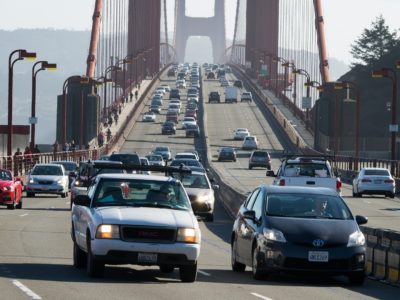An Ax, Not a Scalpel
Trump’s “take no prisoner’s” deregulatory strategy carries big litigation risks.
Some people, it would seem, prefer using an ax to a scalpel. That’s the Trump Administration. That strategy can be a great way to cut down a tree, but it doesn’t work so well for surgery. And there’s always the chance of cutting off your own foot.
In many environmental domains, the Administration seems set upon going as far as it possibly can with its regulatory proposals. And then perhaps a little further. This is a high-risk strategy: It’s as if instead of adopting the Clean Power Plan to ratchet down emissions from the power industry, Obama’s EPA had tried to ban coal and oil entirely. Here’s how the Trump approach works:
- Don’t just slow down increases in national MPG standards for cars and provide an off-ramp. Instead, freeze the standards completely and then for good measure try to overturn California’s established power to impose its own standards.
- And don’t just water down Obama’s effort to reduce carbon emissions by electricity generators, the Clean Power Plan. Replace it with a mandate so weak that it could actually increase carbon emissions. And then give states the ability to opt out of even that. AND allow power plants to evade rules governing new sources.
- And as for WOTUS, the Obama Administration’s rule governing federal jurisdiction over wetlands and streams, don’t just repeal the rule. And don’t fine-tune it to lighten its impact. Instead, adopt an interpretation of the Clean Water Act that appeals courts across the country have rejected – an interpretation that would take away jurisdiction that even the Bush Administration never challenged.
- Not to mention the strategy for dealing with unfavorable science. Rather than trying to find flaws in individual studies, propose an exclusionary rule that would prevent key scientific studies from being considered as evidence. Basically, any study using confidential health information would be excluded at EPA’s discretion. That proposal was so egregious that it has now been put on the back-burner by even the Trump Administration.
High risk strategies are always trade-offs: worse odds but bigger reward. The Administration seems unwilling even to pretend a serious effort to carry out its statutory mandate of protecting the environment. This unwillingness to maintain a façade of environmental concern may be appealing to the base. But it’s bound to make it harder to persuade judges that its actions are reasonable. The odds are that many judges will find this frontal assault on environmental protection in area after area hard to swallow. And losing cases can have a snowball effect, as judges acquire a sense of lawless behavior by the government.
Maybe the Administration is gambling that it will win these cases because of its Supreme Court appointments. But some of these measures may go too far even for Chief Justice Roberts, the new swing vote. And in any event, the Court hears very few cases a year, and it’s going to have a lot on its plate besides environmental regulation. By proceeding on so many major actions at once, the Trump Administration is probably guaranteeing that some won’t get Supreme Court review.
In case you think that the Obama Administration did the same thing but in reverse, I beg to differ. Obama’s EPA spent a lot of time worrying about the feasibility of its efforts. For instance the Clean Power Plan offered states options for complying and were calibrated on a state-by-state basis depending on the local electricity mix. Major rules like the Clean Power Plan and WOTUS had last-minute changes to soften their impact and make them more acceptable. One of the “building blocks” of the original Clean Power Plan proposal was dropped because of legal concerns, and safe harbors were added to WOTUS. This was quite different from what we’re seeing now.
The Trump Administration’s dramatic efforts to gut environmental protection may trigger Newton’s Second Law. In case you’ve forgotten, Newton said every action has an equal but opposite reaction. Radical actions on Trump’s part may lead the other side to take bolder steps than they would have taken otherwise, as soon as they can do so. The Trump approach can also reach the point where ordinary voters, who generally favor the environment but don’t see it as a priority issue, start paying serious attention. Scorched earth tactics can cause great harm, but they can also fuel rebellions and counter-attacks.






Reader Comments